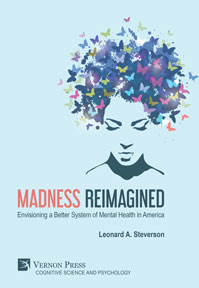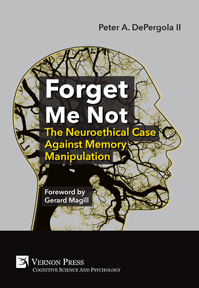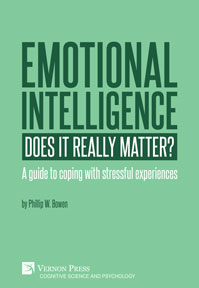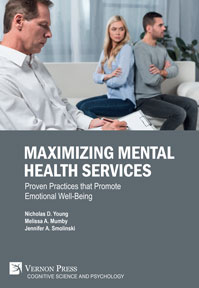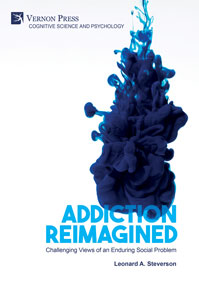The Recovery Handbook: Understanding Addictions and Evidenced-Based Treatment Practices
by Nicholas D. Young (American International College), Melissa A. Mumby (American International College), Jennifer A. Smolinski (American International College)
Purchase this book
(click here to change currency)
Millions of lives have been destroyed by addiction. 'The Recovery Handbook: Understanding Addictions and Evidenced-Based Treatment Practices' is a promising tool for those who care for individuals with addictions as well as those who are ready to make new choices for themselves. This practical guide offers a look at statistics, behaviors, short- and long-term effects as well as promising strategies, protocols and programs that can assist the recovering addict. Important topics such as substance abuse, and gambling, sex, and food addictions are included as well. This is a book that will need to be read more than once to fully capture the wealth of information contained within its page. It will quickly become a valuable reference guide for all who seek to understand addictions and related clinical practice.
Elizabeth J. Bienia, EdD
Professor
Endicott College, Beverly MA
The authors of 'The Recovery Handbook: Understanding Addictions and Evidenced-Based Treatment Practices' have skillfully assembled a comprehensive resource that delves into the subject of addiction. This tome offers practitioners, families and those individuals who may be struggling with addiction and recovery an opportunity to understand the path to successful change. Included are key tools for recovery such as cognitive behavioral therapy (CBT), medications, and both in-patient and group programs. The reader will uncover an expanded understanding of addiction and recovery and will return to this book again and again for encouragement and support.
Samantha Dutra, EdD,, LMHC, NCC, MaCCS.
Private Practice, Arlington, MA
'The Recovery Handbook: Understanding Addictions and Evidenced-Based Treatment Practices' is a smart, practical tool for individuals who wish to improve their quality of life, for families who have been affected by someone with an addiction, and/or for counseling students and practitioners who wish to learn more about addiction and how to promote positive recovery skills. This book will reduce the angst and turmoil associated with recovery as it goes in-depth to expose both behavioral and substance abuse signs, symptoms, and effects of use. The reader will quickly gain insight into safe and substantial recovery methods that will lead them to a new level of understanding.
Christine N. Michael, PhD
EdD Program Director
American International College, Springfield, MA
Addiction is rapidly becoming one of the most significant challenges to mental health today. According to the latest National Survey on Drug Use and Health (NSDUH, 2018), 19.7 million Americans, aged 12 and older, battled a substance disorder alone in 2017. Additionally, 8.5 million of those individuals also suffered from a mental health disorder, with millions more suffering from a range of other addictive disorders and associated behaviors that interfere with physical, social and emotional health. These alarming statistics highlight the crucial need for mental health providers to be kept up to date with the latest research on the full range of addiction treatment and recovery.
‘The Recovery Handbook: Understanding Addictions and Evidenced-Based Treatment Practices’ provides a comprehensive examination of the various forms of addiction, its physical and mental complexities, and, unlike other sources on addiction, effective evidence-based interventions that promote a healthy recovery. Particular attention is given to the nature of addiction, including environmental, genetic, and developmental factors; with authors examining the short- and long-term effects of a variety of addictions such as drug, alcohol, gambling, food, sex, shopping, work, and video gaming to name a few. This book will serve as a valuable resource for counselors, psychologists, professors, graduate students in the helping professions, as well as families of addicts, co-workers, and those suffering from addiction themselves.
Acknowledgement
Foreword
Part One: Substance Addictions
Chapter 1 Introduction to Addictions and Evidenced-Based Practices: Statistics and the Devastating Nature of Addiction
Chapter 2 Depressants, Alcohol & Cannabinoids
Chapter 3 Stimulants, Psychotherapeutic and Other Prescription Medications
Chapter 4 Hallucinogens, Inhalants and Other Illegal Drugs
Chapter 5 Treatment for Substance Abuse Addictions
Part Two: Behavioral Addictions
Chapter 6 Fighting Against the Odds: Understanding Gambling Addiction
Chapter 7 Fighting the Struggle Within: Understanding Food Addiction
Chapter 8 When Pleasure Becomes Pain: Understanding Sex Addiction
Chapter 9 The Never-Ending Search for a Bargain: Understanding Shopping Addiction
Chapter 10 Living in Virtual Reality: Understanding Internet and Gaming Addiction
Part Three: Resources
Chapter 11 Resources for Recovering Addicts, Families/Peers, and Clinicians
References
About the Authors
Nicholas D. Young, PhD, EdD has worked in diverse educational roles for more than 30 years, serving as a teacher, principal, counselor, special education director, graduate professor, graduate program director, graduate dean, and longtime psychologist and superintendent of schools. He was named the Massachusetts Superintendent of the Year. Dr. Young holds several graduate degrees including a PhD in educational administration and an EdD in psychology. Dr. Young has written extensively in the fields of education, counseling, and psychology.
Melissa A. Mumby, EdD has worked in various levels of K-12 education for over a decade. She began her career as a high school English and drama teacher and then transitioned into a role as a special educator, working with both middle and high school students. From there she became a special education coordinator for grades K-5, and eventually the special education director for grades K-12 at a local charter school. She is currently an educational team leader in an urban public school district in Massachusetts. She has written books and book chapters on strategies for helping underperforming students find success in the classroom.
Jennifer A. Smolinski, JD has worked in education for more than four years. Her role within higher education include the creation of, and coordinator for the Center for Accessibility Services and Academic Accommodations at American International College located in Springfield, Massachusetts. She has also taught criminal justice and legal research as well as writing classes within the field of higher education, Prior to her work at the collegiate level, Attorney Smolinski worked as a solo-practitioner conducting education and disability advocacy. She received her law degree from Massachusetts School of Law.
Mental health, mental illness, well-being, emotional well-being, treatment modalities, evidence-based practices, evidence-based treatments, therapeutic outcomes, therapists, counselors, group therapy, addiction, rehabilitation, behavioral addictions, substance abuse, substance additions, special populations
Subjects
Sociology
Education
Cognitive Science and Psychology
Series
Series in Sociology
Related services
Find in a library near you Download HQ cover Find in Bookshop.org Find this title in AmazonSee also
Bibliographic Information
Book Title
The Recovery Handbook: Understanding Addictions and Evidenced-Based Treatment Practices
ISBN
978-1-64889-065-9
Edition
1st
Number of pages
174
Physical size
236mm x 160mm

![The Recovery Handbook: Understanding Addictions and Evidenced-Based Treatment Practices [Paperback]](/file/12569/cdcb206c0d358971ffe9e99c9ff5fe92/1597159223.jpg)


